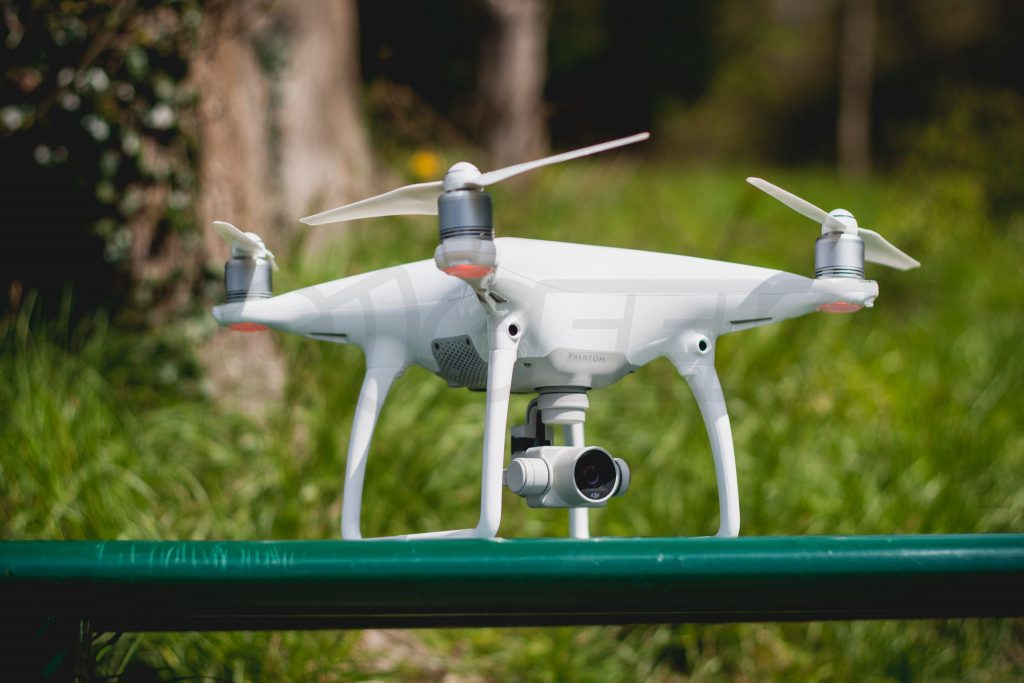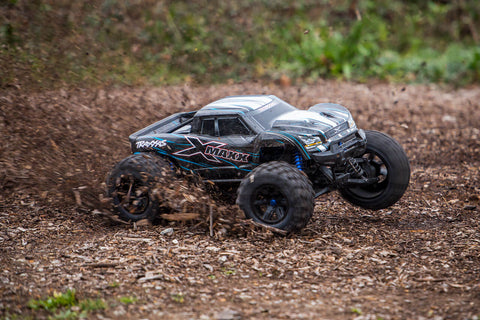Tap To Fly (aka TapFly) is one of the great new features DJI have brought to the Phantom 4. Using the DJI Go app, all you have to do is tap where you want to fly on the live view and the drone will fly in that direction. Thankfully, with the new obstacle avoidance system, you can use this feature with confidence, knowing that it will automatically stop if it approaches an obstacle or increase in altitude to avoid it. We decided to trial the feature ourselves to see how it works and how well it performs. https://www.youtube.com/watch?v=zjAzZ6sT460
 The tap to fly option will then appear in the bottom left, represented by a cross hair icon and the word 'TAPFLY' beneath it.
The tap to fly option will then appear in the bottom left, represented by a cross hair icon and the word 'TAPFLY' beneath it.  Then all you have to do is tap on the live view screen where you want to fly, it will ask you to confirm the direction by taping the 'GO' icon and then it's away! You can change its speed using the slider on the right of your screen. Its max speed in this mode is 10m/s or 22mph.
Then all you have to do is tap on the live view screen where you want to fly, it will ask you to confirm the direction by taping the 'GO' icon and then it's away! You can change its speed using the slider on the right of your screen. Its max speed in this mode is 10m/s or 22mph.  You can alter it's direction at any time by taping somewhere else on the screen. To stop it, you can either tap the 'stop' icon on the left hand side of your screen or flick out of GPS mode on the 3 position toggle on the back left of your controller.
You can alter it's direction at any time by taping somewhere else on the screen. To stop it, you can either tap the 'stop' icon on the left hand side of your screen or flick out of GPS mode on the 3 position toggle on the back left of your controller. 
 The craft will either come to a stop when it arrives at an object, or it will gain altitude to continue over the top of it. In the case of our test, the obstacle avoidance system detected that the bridge was obstructing its flight path but could also see that there was space above it, allowing it to avoid the bridge and continue in the direction we asked it to.
The craft will either come to a stop when it arrives at an object, or it will gain altitude to continue over the top of it. In the case of our test, the obstacle avoidance system detected that the bridge was obstructing its flight path but could also see that there was space above it, allowing it to avoid the bridge and continue in the direction we asked it to.  Something worth mentioning is that in our tests, once the Phantom had avoided an obstacle by flying over it, the craft would continue to fly at its new altitude. It does not descend to its original cruising height.
Something worth mentioning is that in our tests, once the Phantom had avoided an obstacle by flying over it, the craft would continue to fly at its new altitude. It does not descend to its original cruising height.
How to Use Tap To Fly
Before we get into it, you need to make sure you have multiple flight modes enabled via the drone tab in the settings menu. When flying in GPS mode, you should see a round icon of a controller on the left hand side. Tap this to open up the multiple flight modes. The tap to fly option will then appear in the bottom left, represented by a cross hair icon and the word 'TAPFLY' beneath it.
The tap to fly option will then appear in the bottom left, represented by a cross hair icon and the word 'TAPFLY' beneath it.  Then all you have to do is tap on the live view screen where you want to fly, it will ask you to confirm the direction by taping the 'GO' icon and then it's away! You can change its speed using the slider on the right of your screen. Its max speed in this mode is 10m/s or 22mph.
Then all you have to do is tap on the live view screen where you want to fly, it will ask you to confirm the direction by taping the 'GO' icon and then it's away! You can change its speed using the slider on the right of your screen. Its max speed in this mode is 10m/s or 22mph.  You can alter it's direction at any time by taping somewhere else on the screen. To stop it, you can either tap the 'stop' icon on the left hand side of your screen or flick out of GPS mode on the 3 position toggle on the back left of your controller.
You can alter it's direction at any time by taping somewhere else on the screen. To stop it, you can either tap the 'stop' icon on the left hand side of your screen or flick out of GPS mode on the 3 position toggle on the back left of your controller. 
Object Avoidance in Autopilot Flying
As mentioned earlier, the obstacle avoidance system is automatically turned on when flying in TapFly mode to avoid the aircraft crashing. The two front-facing cameras are located at the top of the front legs and provide the craft with stereoscopic image data that can be analysed in real time The craft will either come to a stop when it arrives at an object, or it will gain altitude to continue over the top of it. In the case of our test, the obstacle avoidance system detected that the bridge was obstructing its flight path but could also see that there was space above it, allowing it to avoid the bridge and continue in the direction we asked it to.
The craft will either come to a stop when it arrives at an object, or it will gain altitude to continue over the top of it. In the case of our test, the obstacle avoidance system detected that the bridge was obstructing its flight path but could also see that there was space above it, allowing it to avoid the bridge and continue in the direction we asked it to.  Something worth mentioning is that in our tests, once the Phantom had avoided an obstacle by flying over it, the craft would continue to fly at its new altitude. It does not descend to its original cruising height.
Something worth mentioning is that in our tests, once the Phantom had avoided an obstacle by flying over it, the craft would continue to fly at its new altitude. It does not descend to its original cruising height.
A Great Way to Pilot for Beginners
The Tap To Fly feature is a very easy and intuitive way to fly a drone. It's perfect for anyone who is not used to the conventional two stick controller or unconformable with their hand-eye coordination. With this, it's obstacle avoidance system and other flight modes such as the Active Track, the DJI Phantom 4 has firmly secured itself as the best drone on the market for both beginners and pros alike.-

-

-

-

-

-

-

-

-

-

-

-

-

-

-

-

-

-

-

-

-

-

-
 reviews
reviewsAxial SCX10 II Jeep Cherokee Scale Crawler Review : Does it live up to its reputa...
Tom Begley | -

-

-

-

-

-

-

-

-

-

-

-

-

-

-

-

-

-

-

-

-

-

-
 tutorial
tutorialMavic 2 & DJI Goggles : The ultimate pairing in filming, inspections & surveys
Tom Begley | -

-

-

-

-

-

-

-

-

-

-

-

-

-

-

-

-

-

-
 reviews
reviewsFrSKY's Taranis Q X7 Transmitter - A budget alternative to the Taranis Plus X9D?
Tom Begley | -

-

-

-

-

-

-

-

-

-

-

-

-

-

-

-

-

-

-

-

-

-

-

-

-

-

-

-

-

-

-

-

-

-

-

-

-

-

-

-

-

-












































































































